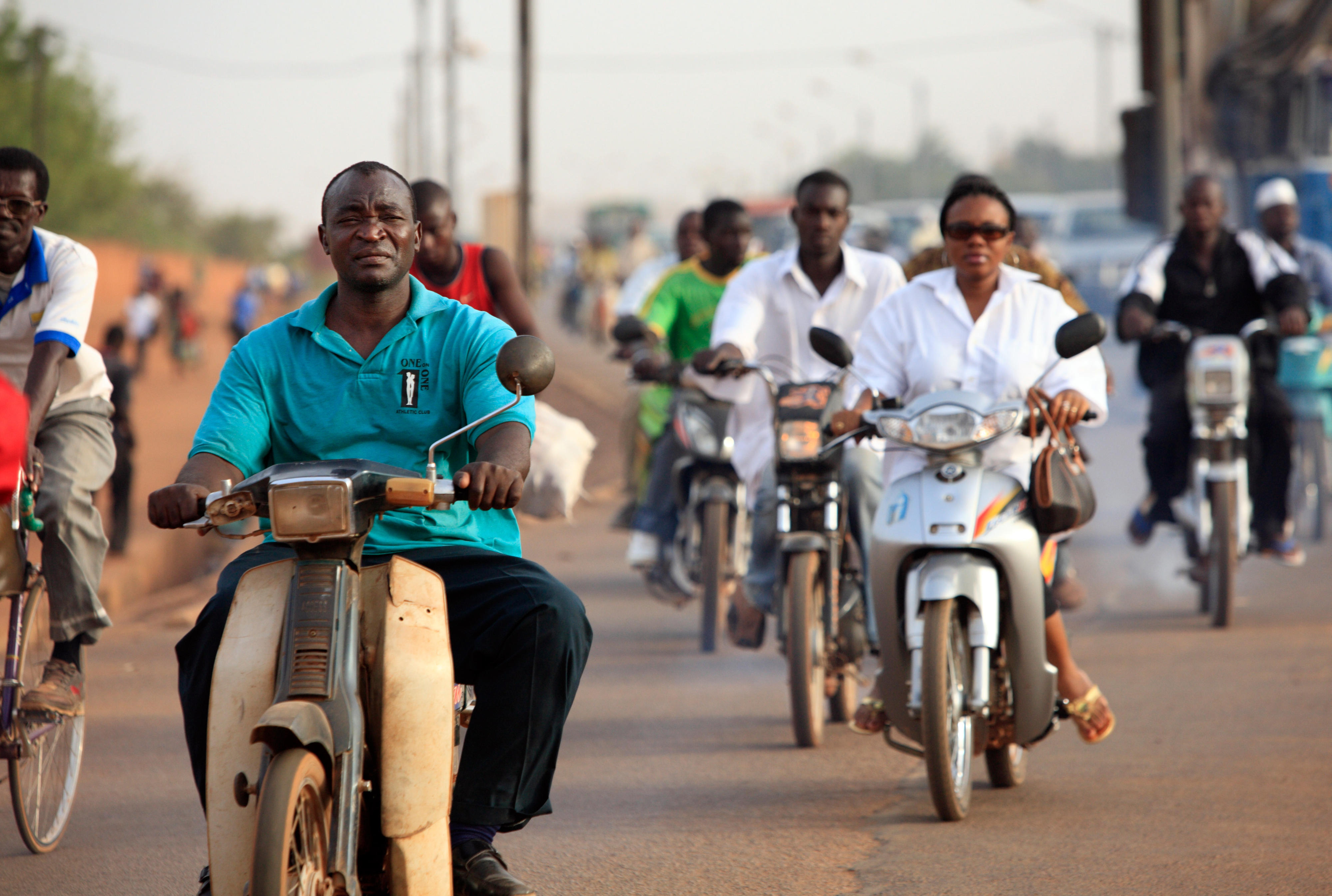Political situation Setback after new democratic beginning
Traffic in Ouagadougou
The presidential election held in 2015 was deemed to have been free and fair. It was won by Roch Kaboré, who was then re-elected for a second term in 2020. In January 2022 his government was toppled by a military coup. The interim government that was then appointed agreed with the Economic Community of West African States (ECOWAS) on a transition plan envisaging a return to constitutional rule by July 2024.
In October 2022, sections of the armed forces mounted another coup. They cited the worsening security situation as justification for overthrowing the interim government and gave an assurance that they would continue to adhere to the agreement with ECOWAS. At the end of January 2024, however, Burkina Faso decided to withdraw from ECOWAS. Since then it has been unclear whether the agreement still stands. So far (as at February 2024), no date has been announced for new elections.
Since 2015, Burkina Faso has experienced a growing number of terrorist attacks by Islamist groups. In the Global Terrorism Index (GTI), which assesses the impacts of terrorism worldwide, Burkina Faso was second out of 163 countries in 2023, with only Afghanistan being ranked worse.
The terrorists are making calculated use of people’s growing dissatisfaction with the political and economic situation and their dwindling trust in the state in order to widen their own spheres of influence and win new followers.
Particularly hard hit by the attacks and the resulting humanitarian crisis are the rural areas in the north and east of the country near the borders with Mali and Niger, countries that are also severely affected by Islamist terrorism. But security incidents have also recently been increasing at the southern borders with Benin, Togo and Côte d’Ivoire.
As at: 15/02/2024
